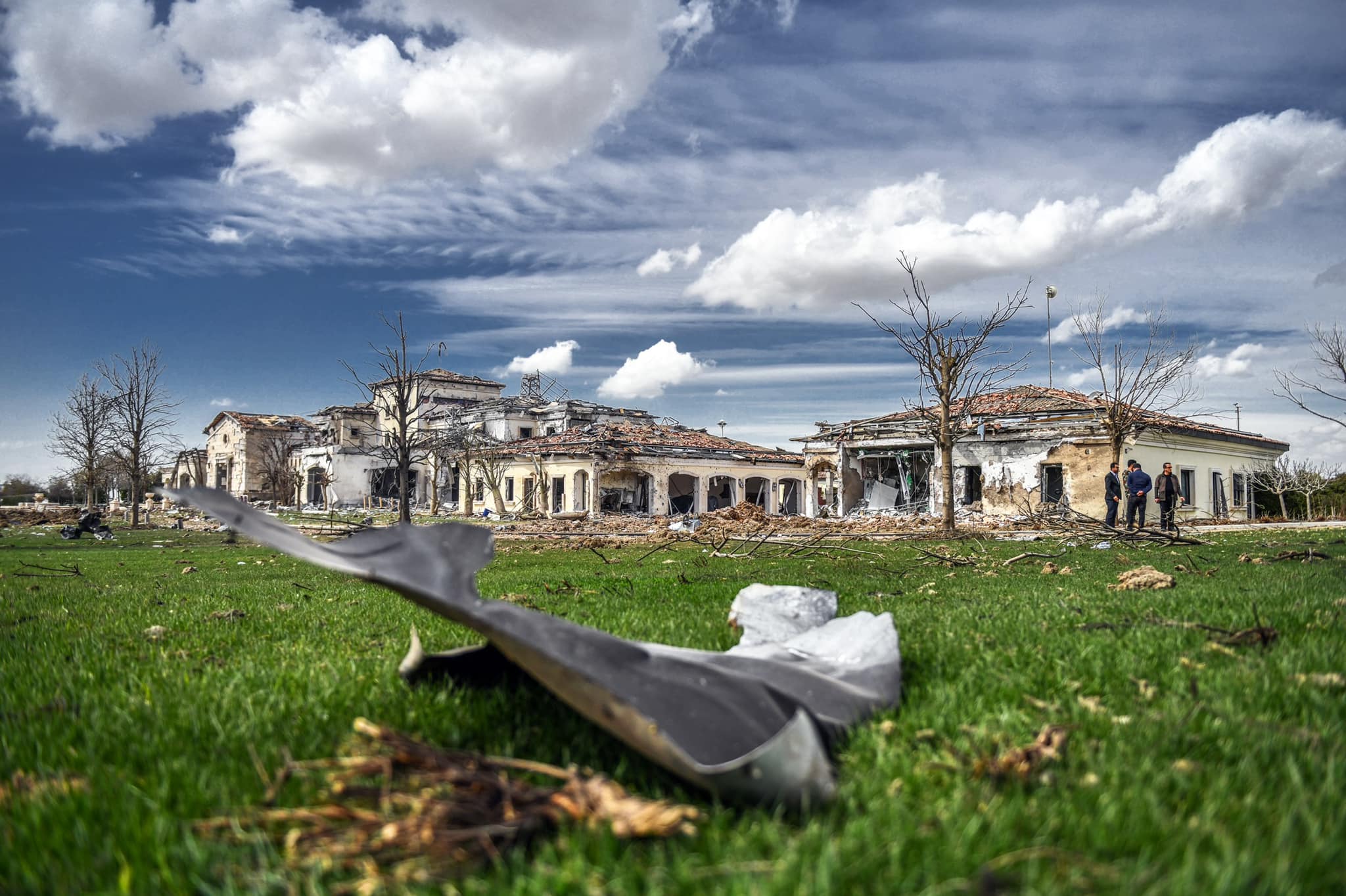US sanctions Iran for missile attacks on Erbil, Saudi Aramco

WASHINGTON DC (Kurdistan 24) – The US Treasury Department announced on Wednesday that it was imposing sanctions on Iran for its unprovoked missile assault earlier this month on the Kurdistan Region capital Erbil, as well as a subsequent missile attack by the Houthis, which Tehran backs in Yemen, on a major Saudi oil target.
The sanctions announced on Wednesday were issued in response to "Iran's missile attack on Erbil, Iraq on March 13 and the Iranian enabled Houthis missile attack against a Saudi Aramco facility on March 25," a statement from the US Treasury Department explained.
Iranian Strikes Linked to Energy Production?
The Treasury Department made clear that the Houthis' March 25 attack on Saudi targets was related to energy production, as it specifically named the target: a Saudi Aramco facility.
But the same might well be said about Iran's March 13 attack on Erbil: it was related to energy production in the Kurdistan Region.
The Prime Minister of the Kurdistan Regional Government (KRG), Masrour Barzani, suggested as much in remarks that he made on Tuesday while speaking on a panel at the World Government Summit in Dubai.
Read More: Rockets and institutions aim to stop Kurdistan Region from becoming main energy supplier: PM Barzani
"As we are discovering more oil and gas fields, and we are trying to develop those areas, this is something that may not be in the interest of the Iranians," Barzani stated in response to a question about Iran's missile attack on Erbil.
The missiles targeted the home of Baz Karim Barzinji, head of the KAR Group—the most important energy firm in the Kurdistan Region.
In addition, on March 10, the Houthis launched a drone attack on an oil refinery in the Saudi capital, Riyadh, which started a small fire and caused the refinery's production to dip temporarily.
Ten days later, on March 20, the Houthis attacked an Aramco distribution facility in Saudi Arabia's Red Sea port city of Jeddah, causing another fire.
The repeated strikes by Iran, or its proxies, on oil facilities or individuals linked to oil production invite the question: Is Iran trying to cut oil production in the region?
If so, that invites an entire series of questions, which merit thoughtful consideration.
What is Iran's motive in striking oil facilities? Does it relate to an expectation in Tehran that it will soon conclude a renewal of the 2015 nuclear deal and regain the ability to export its own oil freely? Is Tehran seeking to reduce others' oil production to create room on the international market for its own production without causing oil prices to fall?
If so, is Tehran targeting Middle Eastern oil facilities entirely for its own reasons? Or is it acting in concert with Moscow, with which it is allied? After all, Russia is using its energy exports, mainly to Europe, as leverage to counter economic sanctions imposed that have been imposed on it for its invasion of Ukraine.
Read More: US welcomes increased energy production as KRG announces readiness to help meet world energy needs
Indeed, in his address on Tuesday to the World Government Summit, Barzani explained how decisions made in Baghdad—where Tehran exerts considerable influence—serve that objective. Specifically, he cited last month's ruling by Iraq's Federal Supreme Court, which, if recognized, would deny the KRG the right to export oil and gas under its own authority (the KRG has declared the ruling unconstitutional; contrary to federalism; and otherwise illegal).
Barzani also noted that the Iranian missile strike aimed to influence the formation of a new Iraqi government—which has been long delayed, as elections were held on October 10, nearly six months ago.
An alliance among the Kurdistan Democratic Party, the Shi'ite Sadrists, and the Taqadum (Progress) Party, led by the Sunni Speaker of Parliament, Mohammed al-Halbousi, has the seats to form a government.
But the pro-Iranian parties, known collectively as the Shi'ite Coordination Framework, are demanding that they be included in the government and be given ministries as well!
US Sanctions on Iran's Ballistic Missile Program
The new US sanctions announced on Wednesday include one individual and four companies.
Mohammad Ali Hosseini is the individual whom the US sanctioned. The 53-year old Iranian is linked to Iran's Islamic Revolutionary Guard Corps (IRGC), as well as Parchin Chemical Industries, the Treasury Department explained.
Already in 2007 and 2008, Parchin Chemicals was designated by the UN Security Council, the European Union, and the US.
Two Iranian companies, Jestar Sanat Delijan and Sayehban Sepehr Delijan, which are linked to Hosseini, were also designated on Wednesday. In addition, P. B. Sadr Construction Company, which is tied to Parchin Chemicals, was sanctioned, as was Sina Composite Delijan, which is linked to the IRGC.